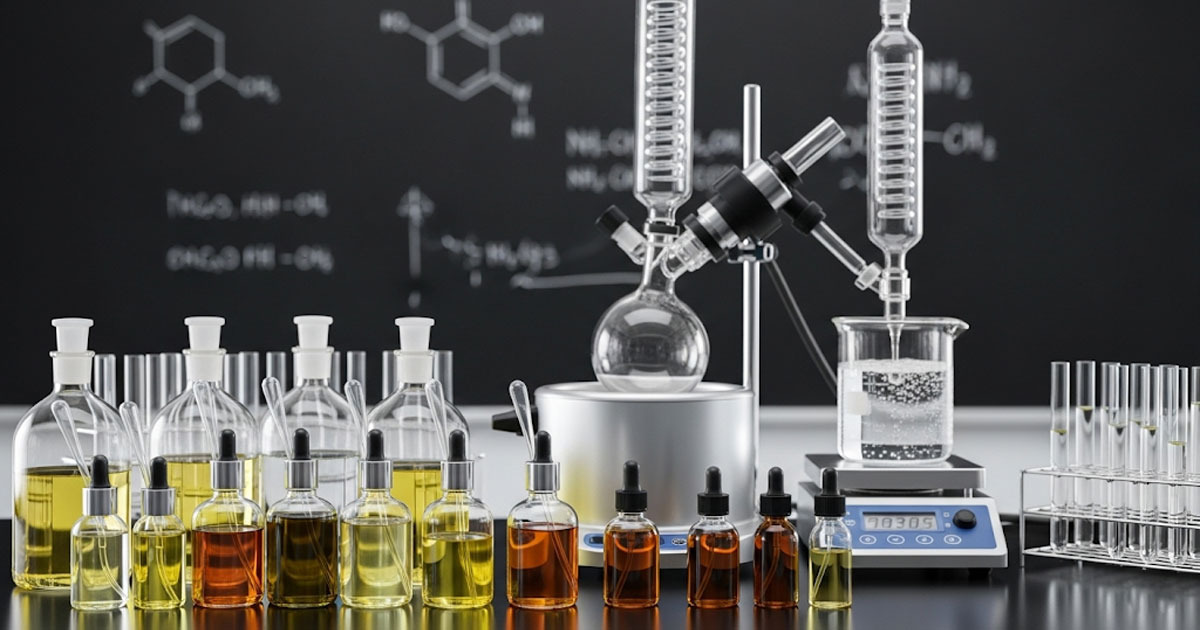The Urgency for Sustainability in Fragrance Development
In today’s formulation landscape, sustainability is no longer optional it is a strategic imperative. The fragrance industry, traditionally reliant on synthetic and non-renewable resources, now faces growing pressure to evolve.
Regulatory frameworks, consumer demand, and environmental impact are driving formulators to rethink how scents are created and integrated into products. Global brands are re-evaluating their sourcing practices to align with sustainability goals.
From agricultural waste valorization to renewable feedstocks, the fragrance sector is experiencing a shift. This change is not merely cosmetic; it represents a redefinition of value, performance, and ethics in product development.
As product developers prioritize lifecycle thinking, fragrance suppliers must innovate to support cleaner, greener options. This transformation requires an integrated approach across raw material sourcing, processing technologies, and end-of-life considerations.
Green Chemistry as the Cornerstone of Innovation
Principles That Shape Eco-Conscious Formulation
Green chemistry is at the heart of sustainable fragrance development. By minimizing hazardous substances and maximizing atom efficiency, it enables safer and cleaner production. Fragrance ingredients crafted through green chemistry offer the same sensory appeal while reducing ecological burden.
One prominent approach is enzymatic synthesis, which replaces traditional petrochemical methods with bio-catalysis. This not only reduces energy consumption but also minimizes waste by-products. The use of supercritical CO₂ extraction is another advancement, allowing for solvent-free isolation of delicate scent molecules from botanicals.
Incorporating biodegradable and non-toxic molecules is essential for ensuring that fragrances do not accumulate in the environment. Suppliers focusing on these molecular attributes are contributing to safer water systems and improved air quality after product use.
Ethical and Traceable Raw Material Sourcing
The Rise of Responsible Ingredient Stewardship
Sustainable fragrance formulation also hinges on ethical sourcing. Essential oils, absolutes, and resinoids derived from plant materials must be obtained in a way that respects both biodiversity and the communities involved in their production.
Traceability is now a non-negotiable component of responsible formulation. Many suppliers have adopted blockchain and digital tracing systems to validate origin, cultivation practices, and supply chain integrity. These innovations allow formulators to ensure that every drop of fragrance aligns with environmental and social compliance standards.
Furthermore, upcycled ingredients such as citrus peels from the food industry are gaining popularity. These not only reduce waste but also offer unique aromatic profiles, expanding the perfumer’s palette while reinforcing sustainability narratives.
Sustainable Fragrance in Product Innovation
Supporting Brands with Scalable, Clean Solutions
Brands across beauty, personal care, and home care sectors are actively seeking fragrance partners that can provide low-impact solutions without sacrificing olfactory performance. To meet this need, fragrance houses are launching clean fragrance platforms that meet global regulatory standards, including IFRA compliance and natural origin certification.
Customization is also key. Tailored fragrance solutions can align with a brand’s sustainability mission, whether it emphasizes vegan formulations, waterless formats, or carbon-neutral production. These bespoke developments enable differentiation in a crowded marketplace increasingly dominated by eco-aware consumers.
Moreover, collaboration between R&D, marketing, and procurement teams is crucial. Sustainable fragrance formulation is not only a matter of raw materials but also of storytelling, innovation strategy, and long-term brand positioning.
Toward a Circular Fragrance Economy
Building a Future-Proof Scent Ecosystem
The fragrance sector is gradually embracing circular economy principles designing products and processes that regenerate natural systems. From refillable fragrance systems to fragrance encapsulation that prolongs scent life and reduces dosage, the path forward is increasingly circular.
Biodegradability assessments, carbon footprint audits, and transparent life-cycle analyses are becoming standard practices among responsible fragrance developers. These efforts contribute to reducing overall environmental impact while maintaining high performance standards.
Ultimately, sustainable fragrance solutions represent more than a trend they are a vital part of responsible product formulation. As innovation continues, partnerships between fragrance suppliers, formulators, and sustainability teams will define the future of scent in a planet-conscious world.




